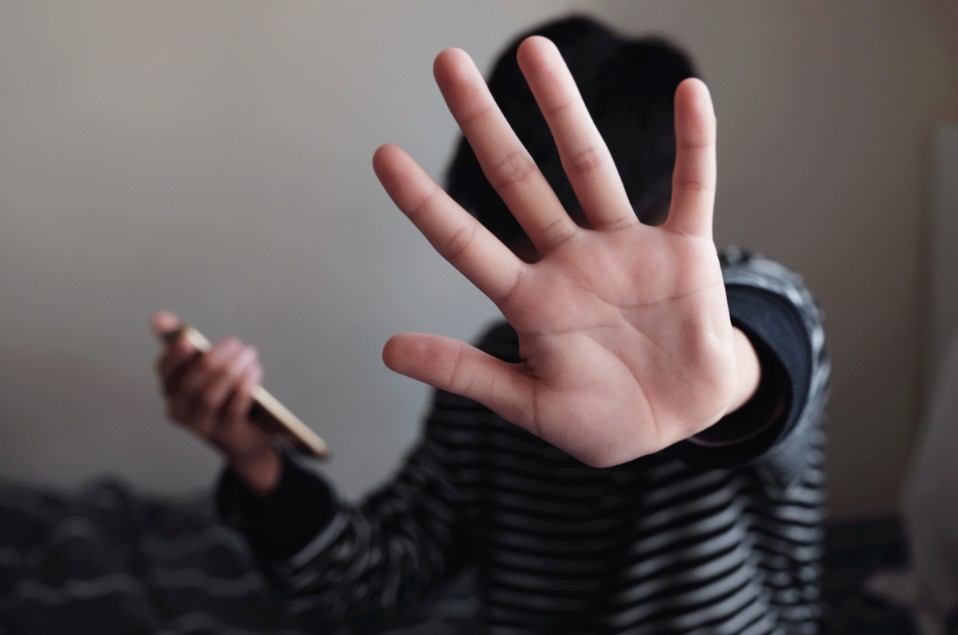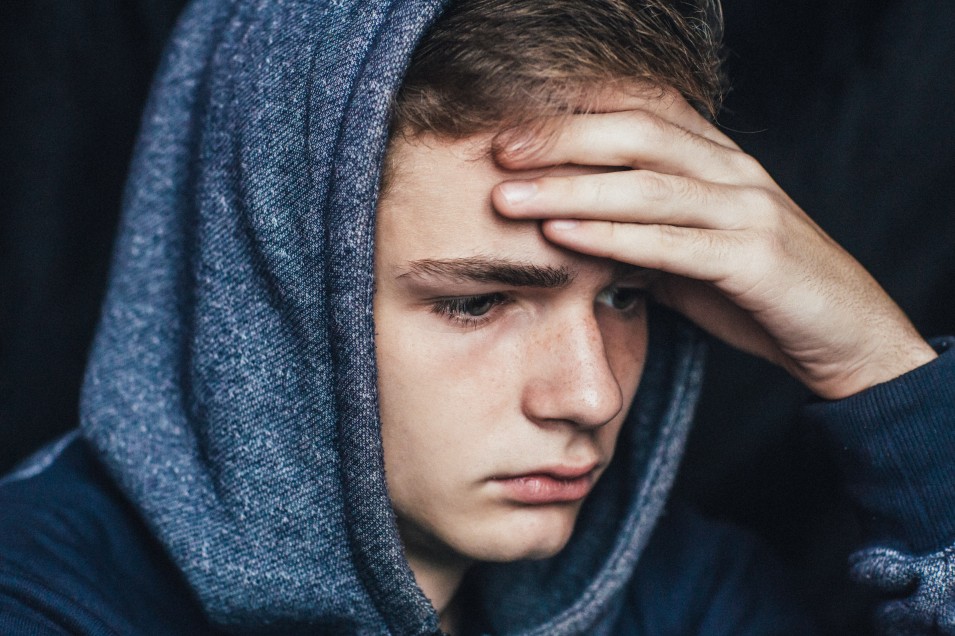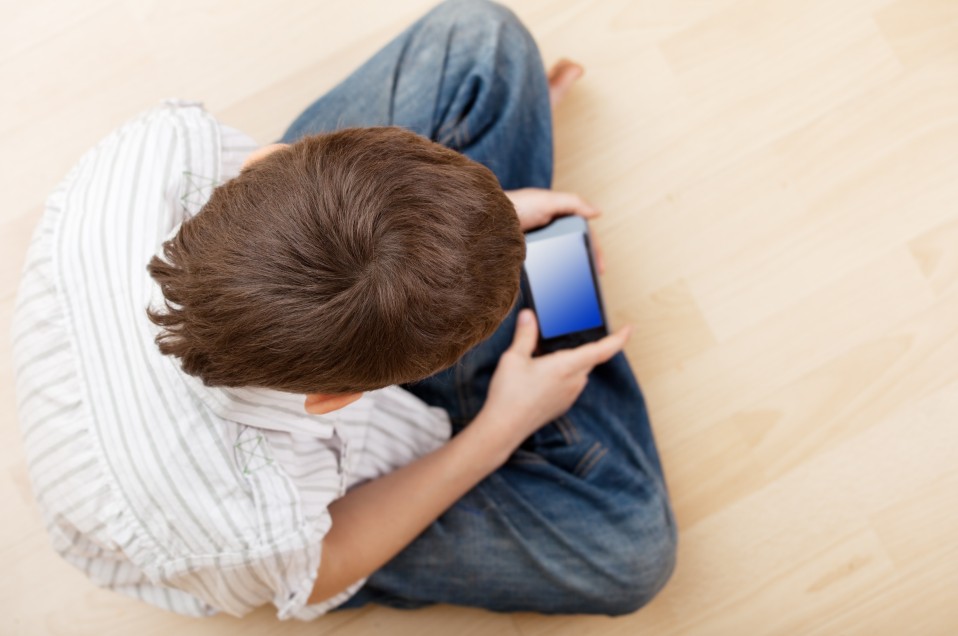Waking Up at Noon and Glued to Phones: Navigating Teenage Life During the COVID-19 Crisis
How many hours are teens spending on media during COVID? What do you do with someone waking up at noon and sleeping at 3 AM? And how do you handle a situation where a teen's only concern is a postponed driving test? Irit Aloni, head of 'Elem' centers for at-risk youth, provides insights.
 Irit Aloni (Illustrative photo: shutterstock)
Irit Aloni (Illustrative photo: shutterstock)For Yosef, a teenage boy, home life wasn't easy. His relationship with his parents was quite shaky, often resulting in arguments and shouting matches. Fortunately, he only came home from yeshiva once every three weeks, endured some discomfort, and then moved on to a place that served as a peaceful and comfortable refuge. That was until COVID turned the tables. Suddenly, he found himself constantly in the pressure cooker of home, with no privacy or space for himself, leading to numerous clashes with his parents. The suffocation between four walls and rising boredom only added fuel to the fire, leaving him with nowhere to escape.
Yosef's case, along with many others that are even more complex, reach the doorstep of 'Elem,' an organization assisting troubled teens. Irit Aloni, with a master's degree in social work, a parental guide, and manager of 26 centers nationwide from Kiryat Shmona to Sderot, talks about the difficulties teens face these days and offers solutions.
 (Photo: shutterstock)
(Photo: shutterstock)
15 Hours on Social Media, 4,000 Messages a Day
"Ever since the COVID period began, many teenagers feel challenged in coping with the situation," says Irit. "This is an age where they are going through the process of identity formation, distancing from parents, and even rebelling against them to some extent. They need their own development space, and society plays a significant role in it. The COVID crisis now makes this struggle even harder. Suddenly, there are no friends, family realities at home can sometimes be cramped, and overwhelming boredom might lead to unhealthy places. Many teens now spend hours on social media, with a locked door that sometimes even has a 'No Entry' sign. They're wearing headphones, so no one hears what they're doing inside, and they have swapped day for night, staying awake while their parents are asleep."
The dangers of social media, she says, are not simple. "Previously, before the era of mobile devices, any call a teenager received usually went through their parents, providing some supervision," she says. "But nowadays, with mobile devices and social networks, parents have no way of knowing with whom their children are communicating. Additionally, if, before COVID, teens spent five hours a day on social media, now they are there for 15 hours a day. Surveys show that teenagers belong to about 40 social groups, receive between 2,000 to 4,000 messages a day, and maintaining this is a big task. They suffer from 'fear of missing out' (FOMO) - the fear of missing experiences, information, or events others are aware of, causing intensive use and checking of social networks. Furthermore, there's a correlation between the time teenagers spend with digital technology and higher levels of stress and depression."
 Irit Aloni
Irit AloniAnother issue in social networks is the loss of empathy. "We have transitioned to short messages and written communication, and when this happens, we can't see the body language or facial expressions of those with whom we converse, and have no way of knowing how they feel about the words spoken," Irit explains. "For example, if someone is told they're fat, in person you can see their body contract and the pain on their face. Conversely, when things are written in a message, you don't see the person's pain, and this opens the way for hurtful words through the keyboard. For the same reason, a child feeling socially rejected daily, and now needing friends more than ever, will not find them in the empathy-lacking social network—instead, they'll be more vulnerable to exploitation and harm through media. A 14-year-old girl from one of our centers, whose mother recently passed away, showed me how her friends sent her 700 messages with crying emojis, but none came over to be by her side or called to express their condolences. Today, teenagers really live within social media."
This is true for all teenagers, and for those at risk, the reality is much more complex now. "Most teens are currently in a nurturing and loving home," Irit says, "but for at-risk youth, the home presents a much greater danger than COVID. Parents are under pressure and concern over the economic and health situation, and in an unprotected home, children become invisible at best or their parents' punching bags at worst."
This situation leads teenagers to escape. "There are two options for escape," she describes, "either inward, to their room, where they become consumers of media and other problematic things to silence the pain, or they flee outside to the street, seeking thrills to quiet the pain. Currently, there are many street gangs finding empty buildings like schools and kindergartens to stay. Last week, for example, we received a request from the police to talk to teens who started chasing police cars on their bikes. We located the teens and explained the severity of the issue, hoping they'll now find something better to do."
What about the ultra-Orthodox teens, who are much less involved in social media, if at all?
"In this context, the ultra-Orthodox community is indeed better off, but we must remember that being a teenager is hard in any case, and being a teenager during corona is seven times harder. They need friends now more than ever—and don't have them, need distance from parents to develop their own identity and not just be the same, which is not easy when everyone is at home for an extended period. A large family is indeed a great gift, as siblings engage with one another, but it can also put pressure on the teenagers, such as an excessive burden of caring for younger siblings or a feeling of not having their own private space, and tension with parents who are themselves under more stress and worry than usual."
 (Photo: shutterstock)
(Photo: shutterstock)
Listening to the Emotional Needs of a Teen
So how can we help teenagers during this time?
"First, we need to understand that parents themselves are terrified of their children's situation. They see the teens sleeping during the day and awake at night, bored, and coming to them with unrealistic dreams; parents don't always know how to cope. Teens might come with dreams like, 'I want to be a fashion designer,' or 'I don't need to study now; at 30, I'll invent a startup and become rich,' and we on our part get scared of their ideas and try to bring them down to earth out of concern. The thing is, what these kids need is for us to tell them how amazing their aspirations are, and only then, to avoid leaving them in fantasies, can we start putting things into practical steps, asking what they need to do to get there. One mother, for instance, told me her son said he wants to be a pilot, and she internally thought, 'let's see him pass his school exams first.' But the truth is, that boy just needed his mother to be impressed and believe he could get there."
And what do we do about the growing boredom among teens during this time?
"When kids tell us they're bored, we usually tend to brush them off with responses like, 'Am I an entertainment team?', or attempt to find solutions, like 'help out at home' or 'read a book.' The truth is neither dismissing their feelings nor jumping to 'doing' is the right thing. Instead, we should listen to the emotional needs of the child, see that they just want us to notice them and what they're going through. There's no educational framework to keep them occupied, and no friends who are so significant at this age—it is really tough. Once their struggle is acknowledged, we can open a dialogue—ask what they usually do when they're bored and help them expand the range of possibilities they can engage with now. You can suggest teens cook or entertain the younger siblings, or engage them in some joint activity. What's important is that they feel significant and useful, and this will empower them to positive action going forward."
But we parents have a heavy load on our shoulders, how do we manage everything?
"We really don't always manage to get to everything, and there will be many hours where our kids will continue to be bored, but at least we'll understand their struggles and needs and won't dismiss them. When a child says, 'It's hard for me,' instead of saying, 'Hard for you? Look what we're going through,' we validate their feelings. One mother, for instance, told me all her daughter cares about is the fact there are no driving tests now. I replied that she's indeed 17 but still a child, and this is what matters to her right now, not her parents' economic or health concerns."
What about setting some boundaries for teenagers during a time when all routines are disrupted?
"Concerning boundaries, it's important to know which battles to engage in and what to let go of right now. For example, there's no point in telling teenagers to wake up at 8 AM, because it won't happen, but you can insist they wake up at 12 instead of 3 PM. Sometimes, teenagers are particularly angry and irritable, and there it's important not to answer them back in anger. By simply showing them that we see their struggle and understand how they feel, we'll deflate a lot of that anger. We have to remember that we too are inside this pressure cooker, with more concerns, and we're likely to get angry at the kids more quickly. So every time it happens, it's worth counting to 10, or at least to 4, before responding."
And we can't help but ask—what about remote learning during this time?
"Regarding learning, there are parents who panic and ask themselves what becomes of a child if they're not studying. We have to remember that distance learning won't turn anyone into a professor, so there's no need to panic. We can enforce learning, but we can give teens control over the structure—letting them choose what hours they're comfortable studying and allowing them to focus on the parts they enjoy more. Choice is a very important word at this age as it gives control back to them and allows them to feel grown up. This is particularly important during a time when we're all feeling helpless."
In homes where teenagers lock themselves away in their rooms, Irit suggests entering anyway. "The fact that the door is closed doesn't mean they don't want us to check in on them. There's no need to burst in, but yes to knock, ask how they're feeling, and what they need. Loneliness can lead to depression, and worse—to risky places within media, and against that, our connection and the mature and sane voice we bring can calm things down."
 (Photo: shutterstock)
(Photo: shutterstock)
"Managing to Survive and Work"
In the last month, many charities have closed due to a lack of donations and budgets. "Precisely the vulnerable populations these charities help are now becoming weaker due to the situation," says Irit. "On the other hand, we at 'Elem' are still managing to survive and work, with about 300 professionals and another 2,000 volunteers. We've pivoted to working with a crazy twist within social media, and we're there to ensure the youth have someone to turn to, and also to identify those in distress. Our street movements, through which we reach youth in different areas, are still operational, and there are also centers open for assistance. It's important to us that the world doesn't close in on youth in distress, and that they know someone sees them and cares. On the eve of Passover, for example, we distributed thousands of food baskets to young single mothers, many of whom lost their source of income."
Do apparently regular kids from seemingly normal families also reach out to you?
"Absolutely yes, because not everything is in the parents' hands. Sometimes they want the best for their child, but the child is dealing with social ostracism or harm outside the home, and to silence the pain they fall into bad places. There are also parents who want well, but can't generate it, and their teenagers experience different difficulties. Teens look for ways to address their struggles outside the home and not with their parents. That's why it's so important we're there. We, for example, recently treated a boy in foster care who wasn't doing well there, and in daily life, he survived the situation because of school. But now he's reached a state of desperation, to the point of not wanting to live, and we had to find him an alternative home and help him cope."
In conclusion, Irit says, "It's important to keep our eyes open and ensure teenagers' wellbeing, to notice changes in their behavior, and if a child draws inward or can't find their place, to help them find a way out. We have the ability to turn this challenge from fear to leadership, and what we need is to listen to our internal parental voice and trust the resilience of our children. Our teens have a lot of strength, and I hope they come out of this period even stronger."

